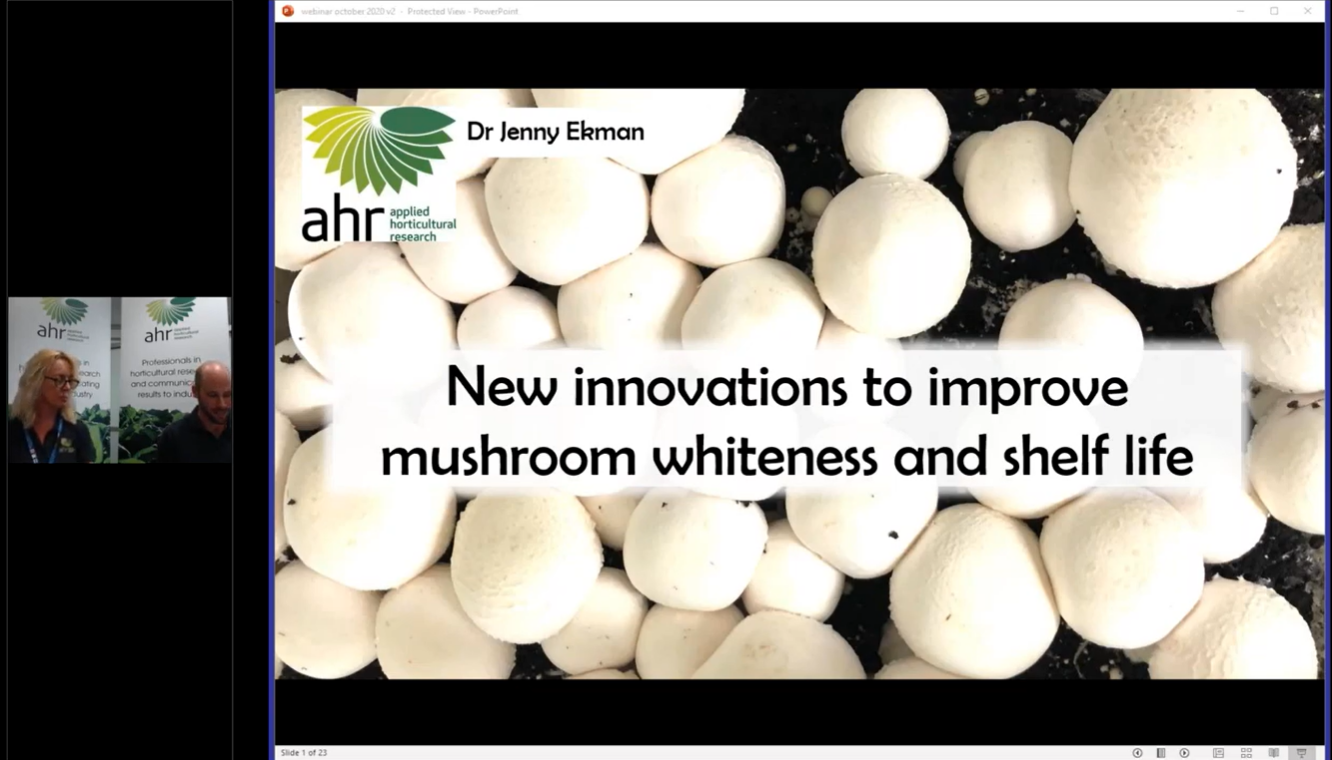Australian Mushroom Industry - Can nitrogen be better managed in compost production
Button mushrooms contain high levels of minerals, vitamins and antioxidants, but are also an excellent source of protein. With 19 - 35% protein per gram of dry weight, they contain more protein than rice (7.3%), wheat (13 %) or milk (25%), and the high content of essential amino acids also means that button mushroom proteins are 90-98% as nutritious as most meat protein.
The nitrogen required to build these proteins comes from the compost, partly from raw materials such as manure, and partly from supplements added later in the process. The carbon:nitrogen ratio in the starting compost mix is usually set to between 30:1 and 35:1, which is optimal for growth of the microbes that convert the straw into productive compost, but only about 12-15% of this nitrogen finishes up in the mushroom crop that goes to market.
This webinar will discuss how nitrogen is transformed into mushroom protein during composting and cropping, where losses occur, and how changes in starting materials or composting processes might be used to increase compost productivity and the nutritional value of the mushroom crop.
Climate change and the Australian mushroom industry – risk, adaptation and opportunities
Climate change and its impact are back in the world debate. Although mushrooms would seem less affected by climate change than other crops – being protected from extremes of weather, the industry remains vulnerable to climate-related risks.
There are also climate-related opportunities to reduce costs and improve the environmental performance of the Australian mushroom industry. E.g., onsite energy generation, new growing substrates and water recycling. Adopting new technologies can reduce costs, sidestep production limitations, and enhance the industry's “green” image.
Join Dr Jenny Ekman, Liam Southam-Rogers and Adam Goldwater who will explain why what’s good for the environment, can also be good for your business when they summarise the outcomes of the levy funded project “Understanding and managing the impacts of climate change on Australian mushroom production”.
Reviewing the factors that improve mushroom whiteness
For mushrooms, whiteness signals quality. It may also be assumed to indicate storage life, flavour and freshness. Presenting clean, white mushrooms to consumers is a proven way to increase sales. Conversely, browning on mushrooms is definitely a negative. Browning may be due to disease, bruising, dehydration or simply age and senescence.
Project MU19005 has reviewed the factors that improve mushroom whiteness, from the time compost and casing are prepared through to harvest and packing. The result is a combination of strategies growers can use right now, techniques that are close to commercialising and advances to watch into the future.
Dr Jenny Ekman will summarise the results from this review and discuss some of the “Best Bets” growers can use to improve mushroom whiteness.
Recycled organics as an alternative to peat in mushroom casing
The Australian mushroom industry uses approximately 25,000 tonnes of peat casing every year. Mostly imported from Europe or Canada at a cost of $300 per tonne, peat is both an expensive and limited resource.
Compost made from recycled organics is locally available and cheaper than peat.
Join Adam Goldwater from Applied Horticultural Research for a webinar where he will present the results of the recent trials of commercially viable white mushroom crops cased with blends of composted recycled organics and peat.
This is a Waste Less Recycle More initiative funded from the waste levy.




